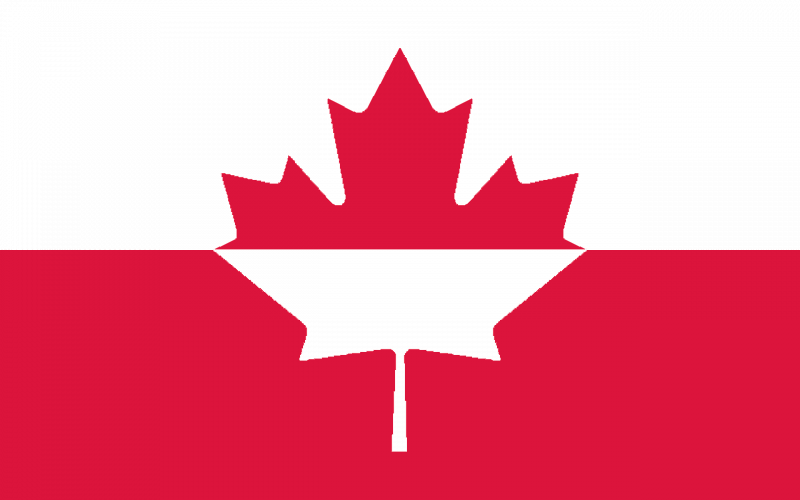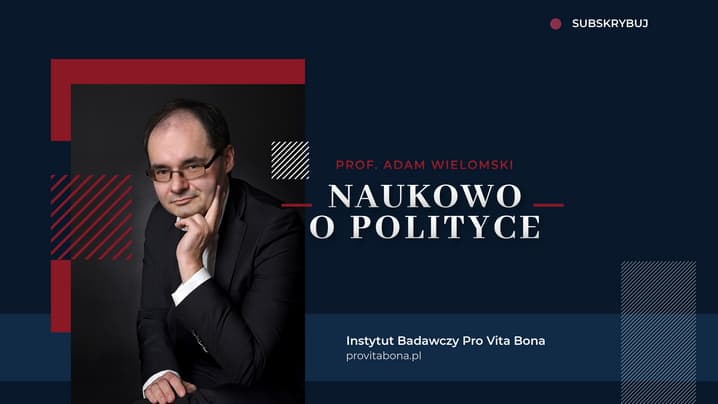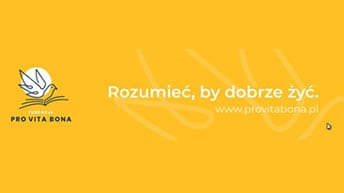Mark Wegierski argues that the Polish-Canadian community must somehow build up significant infrastructures – or find itself fading away.
Mark Wegierski argues that the Polish-Canadian community must somehow build up significant infrastructures – or find itself fading away.
It has to be said at the outset, that the lack of meaningful intellectual and cultural infrastructures for the Polish-Canadian community is particularly troubling. While the work of professor Tamara Trojanowska, who taught Polish Language and Literature at the University of Toronto has been considerably helpful (such as the major international conference on Polish themes that took place in February 2006), professor Piotr Wrobel, who holds the Chair of Polish History at the University of Toronto, has been seen by some as rather cool to the core concerns of the Polish-Canadian community.
The author argues that the Polish-Canadian community must somehow build up significant infrastructures – or find itself fading away. “Canadian Polonia” is a term by which Polish-Canadians refer to themselves, synonymous with “the Polish-Canadian community”.
Canadian Polonia has always complained about the lack of financial resources for its community endeavours. It could be argued that the place of the Polish-Canadian community in Canada is rather attenuated, despite the figures of the 2011 Canadian Census which suggest there are over a million persons of Polish descent in Canada.
Vast initiatives are indeed required to raise the saliency of Canadian Polonia. Some fairly obvious directions are to increase the pressures on all levels of government (federal, provincial, regional/municipal) to provide a more equitable share of multiculturalism and other cultural-related funding to the Polish-Canadian community. It would be helpful if some systematic, comparative research could be done in this area, so that Canadian Polonia could approach the various levels of government with some solid statistics. It should also be remembered that effectively writing grant proposals and putting together grant applications is a major skill.
It may also be remembered that the proposals for establishing a “Polish-Canadian Defence Fund” which were made some years ago, have achieved comparatively little. It could be argued that in the current-day climate, the task of watching the main Canadian media for any anti-Polish comments has to be, at least to some extent, entrusted to very competent, salaried, hopefully full-time, professional researchers. Along with writing letters-to-the-editor and letters to publishers and producers as needed, such persons could also take a “pro-active” role by trying to have Polish-friendly articles appear in various Canadian media. In the case of an institution like this, the funds can only come from the community itself.
In these days of “the Internet Two” some attention must also be paid to social media strategies. There should be an attempt made to build up a reliable “cadre” of individuals that will reliably put forth well-phrased, pro-Polish messages – and fight back against “Pole-bashing” — on the various social media and major newspaper and magazine comment threads they participate in. For example, the community should become able to raise a “Twitter storm” when faced by particularly egregious insults.
There should be the encouragement of such helpful initiatives as “Poland in the Rockies”, and the Quo Vadis conferences. After resuming in 2014, the “Poland in the Rockies” summer event had a mid-winter meeting in early 2016 (according to the website), but apparently no summer meeting in 2016.
A possible source of funding for the community that can now, one thinks, be considered, is from the various cultural institutions of the Polish state, such as the Wspolnota Polska (Polish Commonweal) – a Polish state body officially dedicated to Poles and persons of Polish descent living abroad. (The rhetoric on its website is certainly high-flown!) After all, it is close to thirty years since the fall of Communism!
It is also an unfortunate fact that in today’s Poland, funds are all-too-readily found for rather dubious things – such as paying royalties for the radio-play of what is sometimes the worst of current-day American rap music, and the broadcasting of the more awful Hollywood films and TV series. Indeed, money is flowing out of Poland for all kinds of dubious things and undertakings, while the Polish overseas communities are sometimes left begging for relatively small funds.
Such support could be particularly efficacious in regard to the maintenance of Polish-Canadian archival, library, and museum-type institutions, such as, the Polish Library in Montreal and the Canadian-Polish Research Institute in Toronto. It is to be hoped that perhaps some support can be found for the very elegant Polish Combatants’ Association (SPK) building at 206 Beverley Street (located near downtown Toronto, and near the University of Toronto campus) – so that it could be held by Polish-Canadians in perpetuity as a permanent archival, library, and museum institution. There are significant archival, library, and museum elements already in place there. Perhaps it could be eventually reconstituted as, for example, the Museum of Poland and the Poles in World War II.
Although there may eventually be some help available from Poland, the efforts of the community in regard to various levels of government in Canada should be the main focus. Unfortunately, one finds oneself frequently annoyed by what could be perceived as the excessively obsequious and servile attitudes of some people in Canadian Polonia towards the alleged munificence of the federal and Ontario governments. There actually appears to have been comparatively little funding from those sources for the Polish-Canadian community, after what now seem like the glory days of the 1970s – when Stanley Haidasz was the federal Minister of State for Multiculturalism. I do believe, however, that things recently improved slightly when the Conservatives actively courted various ethnic electorates. It could be argued that it is indeed sometimes helpful to be extremely demanding and almost “shameless” in trying to obtain funding on behalf of one’s own group.
As far as private philanthropy, many of the more prosperous Polish-Canadians seem mostly averse to offer significant bequests (to any of the small, mostly impecunious Polish-Canadian foundations) usually preferring to leave their entire inheritance to children and grandchildren that, in some cases at least (unfortunately) care very little (or nothing at all) about Polish matters. Also, it could be argued that the track record of some major Canadian Polonia fund-raising initiatives has proven quite disappointing to the community, for example, the Chair of Polish History at the University of Toronto. Professor Wrobel is perceived by some as being very cool to core community concerns.
Some worthy goals for the community could be the considerable augmenting of such institutions as the Polish Library in Montreal, the Polish Institute of Arts and Sciences in Canada (PIASC), and the Canadian-Polish Research Institute in Toronto. For example, it would be helpful if the publication of the annual scholarly journal of the Polish Library in Montreal and PIASC, could be restored. (The last extant issue appeared in 2007-2008.)
Obviously, the community should try to increase support to its small, mostly impecunious foundations – notably, the Adam Mickiewicz Foundation in Canada, the Canadian-Polish Millennium Fund, and the Wladyslaw Reymont Foundation.
It would be helpful to put into place such things as real scholarships for Polish-Canadian graduate students in the social sciences and humanities (as seen, for example, in some other communities, reaching an amazing $20,000 a year per person!). These scholarships should be primarily merit-based.
It would also be helpful if these foundations could offer, for example, scholarships for Polish-Canadians taking journalism courses and programs, as well as for students of creative writing working on Polish themes, along with annual prizes for the best Polish-Canadian writers (rather than for already well-established, big-name authors from Poland).
It would be helpful, furthermore, to augment the Polish-Canadian Publishing Fund (Polski Fundusz Wydawniczy w Kanadzie) on the understanding that it would begin to extensively publish books in English, rather than almost exclusively in Polish.
It would be desirable to re-establish a Polish-Canadian literary-artistic-cultural publication along the lines of the now-defunct High Park Magazine (which published twenty-five magnificent issues between 1992 and 1998). Perhaps one of the major Polish-Canadian newspapers might be interested in having such a quarterly magazine supplement?
I have also noticed that the superb Western-Canadian-based literary-artistic-cultural magazine, Strumien (Stream) has not been able to keep up annual appearances. It is presumably short of funds and needs financial assistance.
A hope could also be expressed for the eventual “professionalization” of the executive posts of the main representative institution of Canadian Polonia – the Canadian Polish Congress (KPK). Let us be frank – in other comparatively large ethnic groups such highly responsible positions are well-remunerated. And when fund-raising is done, it is done on a highly professional basis. One need hardly add that the official buildings of the representative bodies of some other groups are considerably more imposing. Can one hope that the KPK will ever be able to break out of what has appeared to be its state of perpetual penury?
The irony is that, as individuals, many Polish-Canadians do considerably or even very well in Canadian society. However, this personal success has, unfortunately, rarely been translated into greater clout and success for the community as a whole.
If at least some of the initiatives mentioned above were rapidly actualized, they could create a social, cultural, and intellectual impetus that could sustain the community for many future decades!
As has been frequently noted, one must in truly efficacious politics combine the cunning of the fox with the nobility of the lion.
Mark Wegierski



